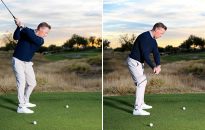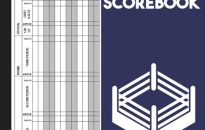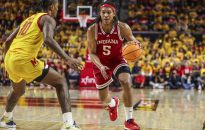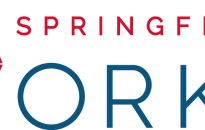While the Paralympic movement grows, representation of individuals with intellectual impairments remains inadequate By Henry Hanson Topic:Paralympic Games 5h ago5 hours agoFri 6 Dec 2024 at 8:29pm Mac Russell is among the top rowers globally with an intellectual impairment. (Supplied: Sport Inclusion Australia) Mac Russell enjoys coastal rowing. He mentions that it presents a degree […]

While the Paralympic movement grows, representation of individuals with intellectual impairments remains inadequate
Mac Russell is among the top rowers globally with an intellectual impairment. (Supplied: Sport Inclusion Australia)
Mac Russell enjoys coastal rowing.
He mentions that it presents a degree of unpredictability that flat water doesn’t match.
The swell’s size, the sunlight glimmering on the waves, the shifting underwater landscape — all these elements create a distinctive experience for each race.
Yet he also appreciates it for the opportunities it affords him.
For much of the past decade, Russell has distinguished himself as one of the premier flat-water rowers with an intellectual impairment.
Nevertheless, chances for elite international competition have been scarce.
At present, neither the Paralympics nor the World Rowing Championships have events specifically for athletes with intellectual impairments.
So, when the Beach Sprint World Rowing Championships introduced an event where he could participate, Russell eagerly accepted the opportunity.
Mac Russell has participated in two World Rowing Beach Sprint World Championships. (Supplied: Sport Inclusion Australia)
Despite the ongoing expansion of para sports, athletes with intellectual impairments (II) are still significantly under-represented at elite levels.
Only three out of 22 sports during this year’s Paralympics provided events for II athletes, and in spite of being an umbrella category, there was merely one class for competition.
However, a push for increased representation at the Games, the establishment of new sports classes, and the sustained growth of alternatives to the Paralympics indicate that elite sports may gradually be opening up to athletes with intellectual impairments.
What constitutes intellectual impairment in Paralympic sports?
At the Paris Paralympics, swimming, athletics, and table tennis hosted events for athletes with intellectual impairments.
In those three disciplines, only one class was available to II athletes.
This stands in stark contrast to events designed for competitors with physical and visual impairments.
For example, swimming featured 10 distinct classes for athletes with physical disabilities and three for those with vision impairments, all categorized based on the functional impact of the individual’s impairment.
Therefore, even in the three sports accommodating II athletes, the representation of II competitors was considerably lower when compared to athletes with physical or visual impairments.
Ben Hance from Australia secured gold in the men’s 100m backstroke S14 at the Paris Paralympics — a competition for swimmers with intellectual impairments. (Getty Images: Joris Verwijst)
For the singular Paralympic class available to II athletes, three main eligibility criteria apply:
- An IQ of 75 or below
- Marked limitations in adaptive behavior, as depicted in conceptual, social, and practical skills
- Onset prior to age 18
The history of II events in Paralympic sports
Competitions for athletes with intellectual impairments made their first appearance at the Paralympics in Atlanta 1996.
They were also present at the Sydney 2000 games, but by Athens 2004, they had vanished.
This occurred after it was discovered that 10 out of 12 members of the Spanish gold-winning basketball team in 2000 had falsified their disabilities.
This was a crushing setback for athletes with intellectual impairments worldwide, leading the International Paralympic Committee to indefinitely suspend all their events.
Following the approval of a new verification system in 2009, events for intellectual impairments in swimming, athletics, and table tennis were reinstated in time for the London 2012 games.
However, athletes from other disciplines have remained excluded from the Paralympic spotlight to this day.
Todd Hodgetts, an Australian shot-putter, claimed gold in the F20 intellectually impaired category at the London Paralympics. (Getty Images: Dean Mouhtaropoulos)
Table tennis: Von Einem’s ‘fortunate’ Paralympic sport
Sam von Einem stands out as one of Australia’s II stars post-2012.
He made his Paralympic debut at Rio 2016, earning Australia’s first Para table-tennis medal since 1984. He secured a second silver at Tokyo 2020 and a bronze in Paris this year.
Von Einem initially showcased his talent as an aspiring tennis player. However, it was after his family relocated to Abu Dhabi during his teenage years that he seriously ventured into table tennis.
“Tennis wasn’t very popular due to the heat most of the year, and we had a table tennis table at home,” von Einem reflected.
Sam von Einem has earned medals at three consecutive Paralympics. (Getty Images: Elsa)
Upon discovering that Para table tennis could offer him a Paralympic chance, he became fully dedicated to the sport.
“That pathway is a significant allure, given that there were only three sports available,” von Einem stated.
“Swimming wasn’t a viable option for me, and likely neither was athletics.”
“It was fortunate that table tennis was among the sports that included athletes with intellectual impairments.”
Alternatives to the Paralympics
For athletes participating in sports not included in the Paralympic framework, alternatives exist.
Organizations like Special Olympics and Sporting Inclusion Australia provide sporting opportunities and competition for II athletes across all ages and capabilities, while the Virtus Global Games occur every four years, preceding the Paralympics.
Virtus serves as the global governing body for athletes with intellectual impairments, representing 500,000 competitors in almost 100 nations, including Australia.
Nick Parr, the executive director of Virtus, refers to the Global Games as the “pinnacle” competition for II athletes who do not compete in Paralympic events.
In non-Paralympic sports, the Virtus Global Games represent the apex of international competition for athletes with intellectual impairments. (Supplied: Sport Inclusion Australia)
The 2023 Global Games showcased twelve sports, differing from the Paralympics where athletes competed in three distinct classes:
- II1 is the standard category utilized at the Paralympics
- II2 includes athletes with intellectual impairments along with a significant additional impairment
- II3 categorizes athletes with autism who do not possess an intellectual disability
Elite pathways for underserved athletes
The II2 classification was introduced at the 2019 Global Games following extensive research conducted by Virtus.
“When only one category exists, there’s bound to be a vast variation among competitors, with some having more pronounced impairments,” Parr noted.
“A significant number of athletes with intellectual impairments often have a secondary disability as well.”
“In competitive settings, those with multiple impairments clearly face disadvantages compared to individuals who only possess a single intellectual impairment.”
In practice, the II2 class serves a historically overlooked portion of the athletic community: individuals with Down syndrome.
Despite being one of the most prevalent genetic conditions globally, Down syndrome is absent from the Paralympic roster.
This is largely because while athletes with Down syndrome are frequently eligible for the intellectual impairment classification at the Paralympics, their coexisting physical impairment complicates eligibility.
Currently, Parr mentions that up to “nine out of ten” athletes competing in the II2 class have Down syndrome.
However, the II2 class is not exclusively for those with Down syndrome. Like all classification systems in Para sports, it groups athletes based on the impact of their impairment(s) on their sport.
In terms of II2 representation at the Paralympics, Parr indicates it is a goal for Virtus, but there are still considerable challenges ahead.
Having debuted at the 2023 Global Games, the II3 classification, aimed at autistic athletes, is still developing.
“These athletes may not fulfill the eligibility criteria for an intellectual disability, yet they encounter numerous barriers and challenges in sports participation,” Parr remarked.
“Even in elite sports, athletes indicate that organizations are not sufficiently equipped to address their support requirements.”
Parr asserts that the II2 and II3 classes have created elite sporting opportunities for athletes who historically lacked such options.
“Both of these groups are rapidly expanding, indicating a positive shift that is likely to persist for many years,” he added.
Looking Ahead
Rowing is included in the sports lineup at the Global Games. In both the 2019 Games in Brisbane and the 2023 edition in Vichy, Russell amassed a total of 12 gold medals.
Despite being one of the fastest-growing sports in the program, Russell notes a persistent lack of competition at the Global Games.
“Rowing ranks among the lesser participants in Virtus events, and I believe that if more opportunities and pathways were available, more individuals would likely participate, leading to increased competitiveness,” Russell stated.
As the standout Australian athlete at the 2023 Virtus Global Games, Mac Russell was honored to plant a tree during the closing ceremony. (Supplied: Sport Inclusion Australia)
In search of enhanced opportunities for elite competition, Russell is exploring the option of receiving a classification for a secondary physical impairment.
If he succeeds, it would open doors for him to both the Rowing World Championships and the Paralympics.
Though the advancement of elite sports for athletes with intellectual impairments has been inconsistent, Parr asserts that progress is occurring.
International federations, such as World Para Swimming, World Para Athletics, International Tennis Federation, and World Karate, have all recently acknowledged and backed the Virtus Global Games.
Furthermore, Parr is optimistic that events for athletes with intellectual impairments will be incorporated into the Winter Paralympics “sooner rather than later.”
Regarding enhanced representation at the Summer Games, there are substantial administrative hurdles to navigate.
Among them is the challenge of available spots.
The International Paralympic Committee and the International Olympic Committee have an established limit of 4,400 athletes at a Summer Paralympics.
This means that if additional II events were to be incorporated into the Paralympic agenda, either existing events would have to be eliminated or a new cap would need to be negotiated.
Yet, Parr contends that this is not the “most constraining factor” for athletes with intellectual impairments.
Rather, it is the enduring consequences of those years spent sidelined from the Paralympic scene.
“Sometimes, there still exists an apprehension regarding engaging with athletes who have intellectual impairments, partially stemming from a lack of understanding of their condition,” Parr remarked.
“There may be misconceptions and myths that need addressing.”
Moving forward, he emphasizes the importance of ensuring that athletes with intellectual impairments are recognized within the growing Paralympic community.
“Awareness and understanding of Para sports are continually evolving, and we want to guarantee that athletes with intellectual impairments are included in that narrative,” Parr stated.
“Given that it is often a hidden disability, it’s not always evident to recognize an athlete or understand how their sport may be impacted.”















It’s concerning that as the Paralympic movement gains momentum, athletes with intellectual disabilities continue to be overlooked. Their stories and achievements deserve to be highlighted just as much as those of athletes with physical disabilities. Ensuring inclusivity and recognition for all types of disabilities is crucial for the integrity and spirit of the Paralympics. A more comprehensive focus could inspire greater participation and support for these athletes, fostering a more inclusive sports environment for everyone.